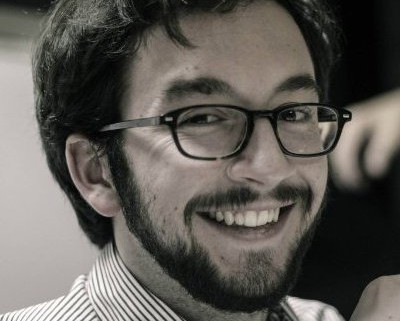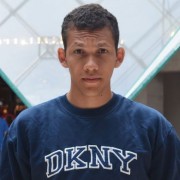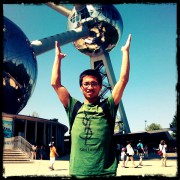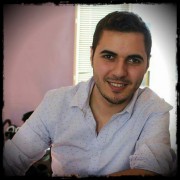Expatriation: an academic challenge, but an even greater personal one
Sergio Martin-Prieto was born in Colombia. A Mines Saint-Etienne graduate, he specializes in chemical and process engineering. Here he describes his vision of expatriation as a human adventure.
I studied at the University of Los Andes in Colombia. Soon to graduate from Mines Saint-Etienne, I now work in Belgium where I am finishing my placement in research and development at Procter & Gamble. After that? The journey won’t end there, as I plan on traveling across Russia by train!
It was my interest in all things international that made me join Mines Saint-Etienne. As soon as I started by Bachelor’s degree in Chemical Engineering, I found out about this dual-degree partnership. It allows me to do 60% of my studies in Colombia, 40% in France and to be a graduate from both institutions. I checked the status of both the school and IMT and saw that the standard was pretty high. For someone like me who is committed and always striving for excellence, it was a brilliant opportunity. I couldn’t speak French but I saw that as a challenge: I promised myself that I would learn the language in three years. And the two months I spent at the Mines Nantes French Summer School were really useful before I went on to Mines Saint-Etienne. It gave me a more concrete idea of what the Institute was about and an insight into French culture.
In fact, I saw this expatriation as more of a personal and human challenge than an academic one. It clearly offers you the possibility to network, but above all it helps you be a more complete person.
“All engineers […] have a global responsibility. I think we should integrate this dimension and always bear in mind the issue of energy use and our environmental impact.”
I was however slightly worried, mainly about administrative and economic issues. The fact that I was awarded the Eiffel grant was a great help and I have the French government to thank for this. It allowed me to focus on my studies. Teaching is different in France and Colombia. Here, class numbers are smaller and lecturers often have a professional background.
After work experience in a P&G manufacturing plant in France, I was straight away able to find an end of study placement working on process development. I really do work in Front End Innovation; I have all the freedom and creativity I could wish for with the products and processes I work on, along with a great team and excellent equipment. This has strengthened my desire to work on processes and on the energy impact of our work and what we are developing. I think we should integrate this dimension and always bear in mind the issue of energy use and our environmental impact. I am convinced that all process engineers have a global responsibility.





















